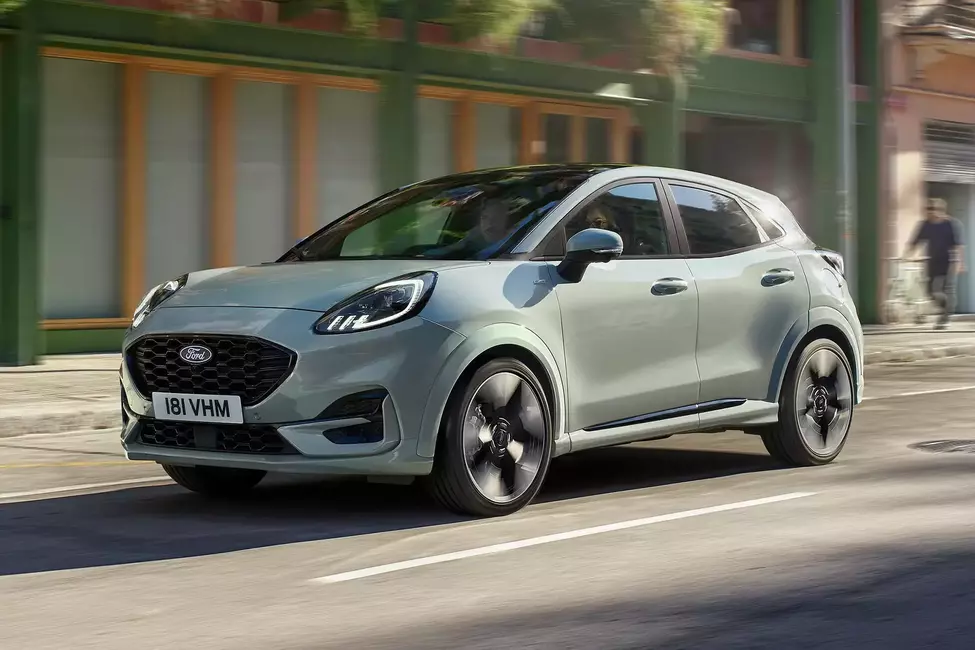Leasing vs buying a car: which is best for you?

Leasing vs buying a car: which is best for you?
If you want to finance your next car, you might be considering buying outright or leasing. Here are the pros and cons of each.
So, you’re in the market for a new car. That means you’re probably asking yourself what the best way is to finance it – do you want to buy it, whether outright or on car finance, or would leasing be a better idea?
The difference in cost between the different methods could be considerably larger than you think – do your research and you could save thousands of pounds. Although it may seem counterintuitive, simply opting for the lowest cash price isn’t always the best way to get the best car deal. There are various things to consider, not least the question of whether you want to drive a new car for a set amount of time, or if you want to specifically own it.
If you want to own the car outright, the most efficient way of doing so – assuming you don’t just buy it with cash up front – is to finance it through a Hire Purchase (HP) contract. This method will see you pay a deposit and monthly repayments to own the car outright at the end of the agreement.
Another option with added flexibility is a Personal Car Purchase (PCP) deal, which again involves a deposit and monthly repayments, but then gives you the option of buying the car outright, returning it or trading it in for another model. As well as extra flexibility, PCP contracts can involve much lower monthly payments than an equivalent HP deal.
Then there’s cars leasing. This can be the most affordable route into driving a new car by some margin, largely because you’re not buying it, you’re renting it over a set time. At the end of the contract, you hand it back with no option to buy. This means you’re not exposed to the risk of depreciation in value that you would be if you bought the car. However, you will have to abide by mileage limits or face extra charges at the end the contract.
Which one is right for you depends on your budget, the type of car you want and whether you want to keep it.
Leasing a car
Pros of leasing a car
- Usually the cheapest monthly payments
- Mostly brand-new cars
- No depreciation risk
Pros of leasing a car
- No option to keep the car
- Mileage limits
- Little protection if you struggle to meet payments
Car leasing is essentially a long-term rental agreement, and is often called Personal Contract Hire (PCH). Generally offered on brand-new cars, its key feature is low monthly payments compared with equivalent PCP or HP deals.
The key difference, however, is that there’s no option to own the car – you have to give it back at the end of the contract. It’ll also include a mileage limit, although this can be altered to suit your requirements. Don’t pick too low a limit, though – excess charges apply for every mile you go over, which you’ll have to pay at the end of the deal. You may also face charges for any damage to the car, beyond fair wear and tear.
Leasing a car means you don’t have to worry about what the car is worth at the end of the contract. You’re simply paying to use it, and the car’s value is the leasing company’s problem to worry about. The downside of leasing is that you don’t get any kind of equity for your monthly payments. If your financial situation changes in the middle of a leasing contract, you also have fewer protections, such as Voluntary Termination, compared to buying a car on finance.
Buying a car
Pros of buying a car
- New and used cars available
- Option to own
- No mileage limits if you keep it
Cons of buying a car
- Depreciation in value
- Higher monthly payments
- Interest charges
There are two main types of finance when buying a car. Personal Car Purchase (PCP) is one of the most popular ways, because it offers relatively low monthly payments and flexibility in what you do with the car at the end of the contract. Available on brand-new cars and cars up to around five years old, PCP agreements see you pay a deposit and then a series of equal monthly payments over an agreed period of time. At the end of the deal, you can hand the car back, trade it in for another one, or pay an optional final payment – also known as a balloon payment – to own the car. You can pay this in one go, or refinance to spread the cost.
Your PCP monthly payments cover only the expected depreciation in a new car, rather than its full purchase price. This usually means the payments are lower than in an equivalent Hire Purchase (HP) agreement, although you will have to find the money for the balloon payment if you want to keep the car. Many people simply use any extra value in the car at the end of the contract – known as equity – and trade it in to get money off another one.
Hire Purchase (HP) sees you pay a deposit and the rest of the purchase price, plus interest, is split into equal monthly payments over an agreed period of time. There’s no optional final payment. Once you’ve paid all the instalments, the car is yours to do with as you wish. There are no mileage limits or damage charges, because the contract explicitly says that you’re buying the car.
HP is available on both new and used cars, giving you lots of choice. The downside is that because you’re paying for the entire value of the car, monthly payments will be higher than an equivalent PCP deal, where monthly payments only cover the car’s depreciation in value. That said, because HP is available on older cars than with PCP deals, you could just get a less valuable car to fit the monthly payments into your budget.
Which method offers the lowest payments?
If you want to drive a brand-new car but don’t intend to keep it, leasing is likely to be the cheapest option. It’s very straightforward – pay a set fee each month, use the car, then hand it back at the end.
That said, it’s worth comparing the cost of leasing with a PCP quote. Many manufacturers offer substantial incentives to new car buyers to take out a PCP deal, including things like 0% interest, deposit contribution schemes and other discounts.
PCP lets you return the car at the end just like a lease, while also giving you the option to buy. If the car’s worth at the end of the deal is higher than the optional final payment, you can trade it in and use the difference towards the deposit for your next car. You can also take out PCP on a nearly new car, which is likely to be substantially cheaper than a comparable brand-new one.
If you’re set on owning the car at the end of the deal, HP is usually a more cost-efficient way of buying. While you pay more each month, you usually pay less overall in interest compared to buying the car at the end of a PCP deal. However, you will have to find the extra cash each month compared to leasing or PCP.
The most cost-efficient way of buying a car outright is often just to pay for it in cash, as you won’t have to pay any interest. However, that’s beyond the financial means of many.
Leasing versus buying a car for business
If your business is VAT registered, leasing could be particularly attractive as you can recover half of the VAT – a rule based on the idea that half the mileage covered by company cars is for private use.
Lease payments can also be claimed as a business expense and are therefore tax deductible. You can claim back more tax on lower-emission cars, as the system is built to encourage more economical vehicles.
If you buy the car you’re less likely to be able to reclaim VAT, and you won’t be able to get a partial refund – unlike with leasing. If you want to get all of the VAT back, you’ll need to show that the car is used only for business purposes with no private use. Tax relief is also trickier, as you’ll need to note the value of any bought vehicles in your accounts. However, interest is usually tax deductible.
Browse our most popular models

24/09/2024
Best Car Deals for New and Used Cars
Whether you're looking for the best PCP deal, huge savings with a great car leasing deal or car finance discounts, we’ve searched to find the best car deals for you.
Best 0% APR Car Finance Deals
If you're looking for a 0% car finance deal on a new car, you've come to the right place. We've searched to find the best 0 interest finance car deals out there to help you save money.
Best PCP Car Deals
Personal Contract Purchase (also known as PCP) could allow you to get your hands on a new car without needing to stump up a significant sum of cash all at once. And to help you out, we've rounded up all the best PCP car deals on offer in the UK today.
Promotions
Trustpilot Reviews
Get our latest advice, news and offers
Keep me updated by email with the latest advice, news and offers from heycar.
By submitting you agree to our privacy policy














